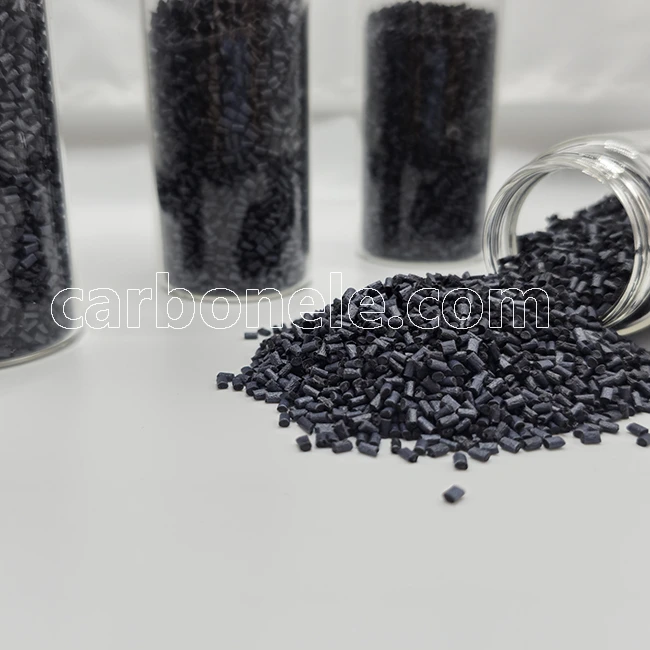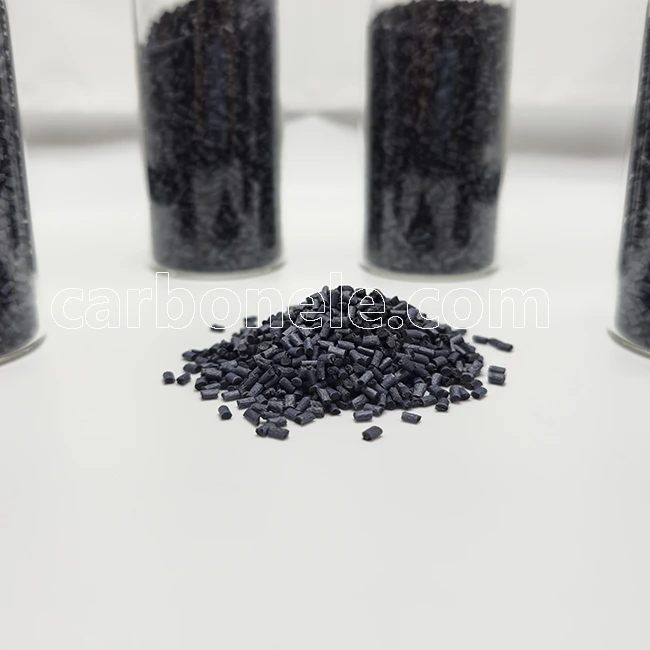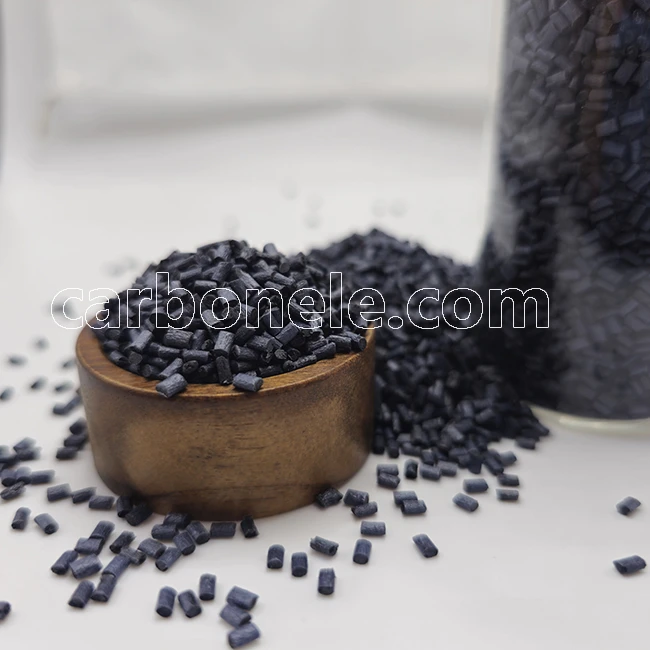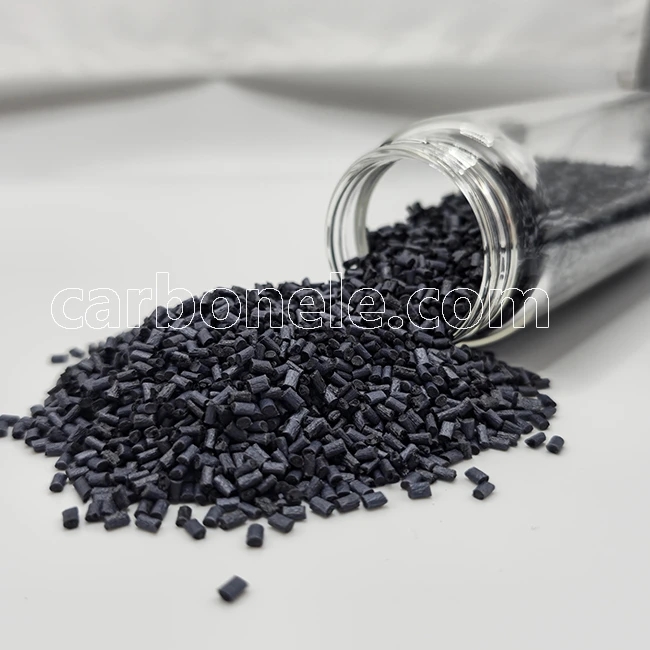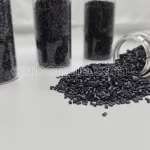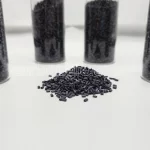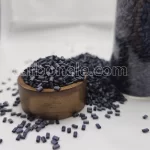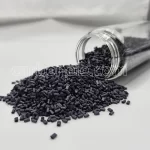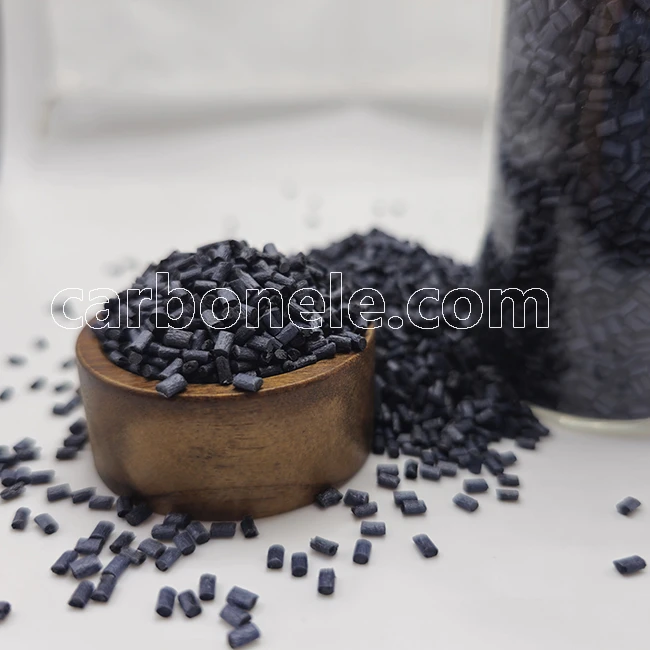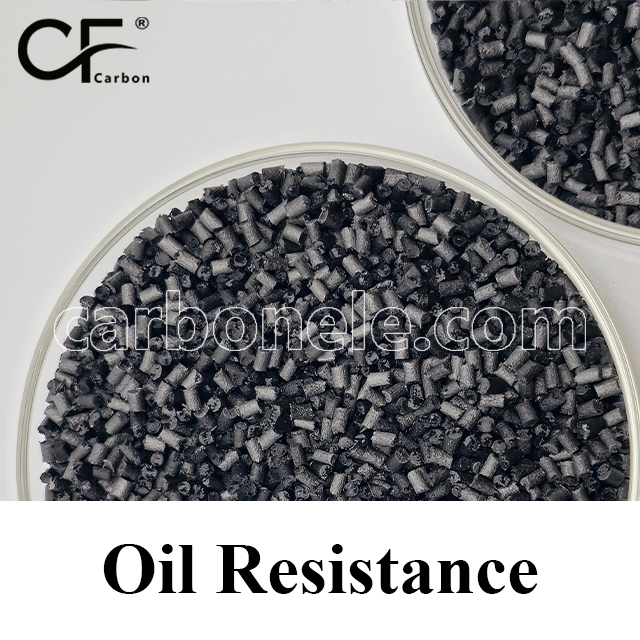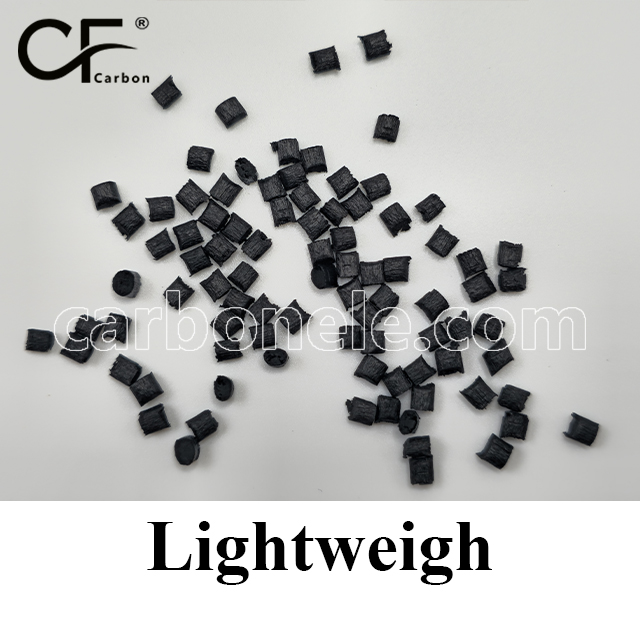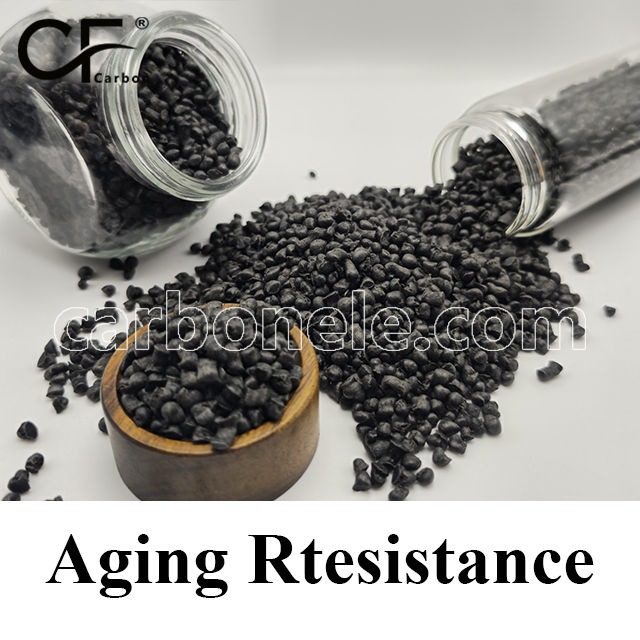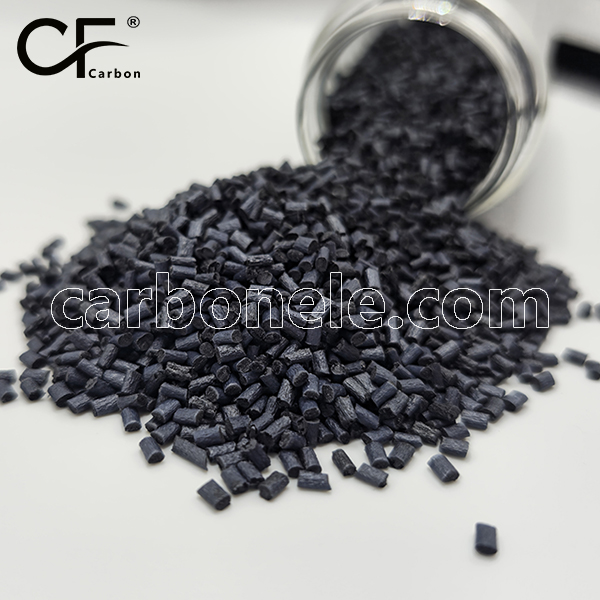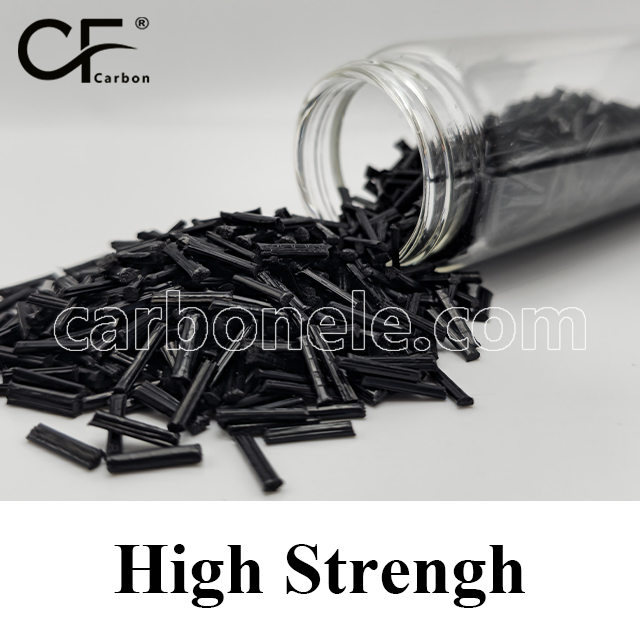
PPS CF40 Compounds PPS with 40% Carbon Fibers Filled
PPS CF40 Compounds are composites of PPS and 40% Carbon Fibers. PPS CF40 Compounds have traits like high thermal stability, enhanced mechanical strength, chemical resistance, low friction, and are lightweight. Ideal for demanding uses.
- Manufacturer: Carbon New Material
- OEM/ODM: Acceptable
- Color: Black
- Free Samples: ≤25kgs
- MOQ: 100kgs
- Port: Xiamen
- Model Number: PPS-CF-BCA4
| Product Name | PPS CF40 Compounds PPS with 40% Carbon Fibers Filled |
| Model Number | PPS-CF-BCA4 |
| Molding Process | Injection/extrusion molding |
| Features | Chemical resistance, anti-corrosion, lightweight, low friction coefficient, etc. |
| Origin of Country | China |
What’s PPS CF40?
PPS CF40 is a high-performance composite material composed of polyphenylene sulfide (PPS) reinforced with 40% carbon fiber. This blend enhances the material’s mechanical strength, rigidity, and thermal stability. PPS CF40 offers exceptional resistance to high temperatures, up to 260°C, and excellent chemical resistance against acids, bases, and solvents. It also features a low friction coefficient, making it suitable for applications requiring minimal lubrication. Its lightweight nature makes it ideal for industries like aerospace and automotive where performance and weight considerations are critical.
Key traits of PPS CF40 Compounds
1. Exceptional Thermal Stability: PPS retains remarkable thermal constancy, being capable of enduring temperatures up to 260°C without considerable deterioration of its mechanical attributes or dimensional steadiness.
2. Substantially Enhanced Mechanical Fortitude: The integration of carbon fibers significantly enhances the material’s robustness and stiffness, providing superior tensile and flexural might.
3. Superior Chemical Resistance: PPS CF40 demonstrates outstanding resistance to a broad spectrum of chemicals, such as acids, alkalis, and solvents, rendering it appropriate for rigorous chemical surroundings.
4. Low Frictional and Self-Lubricating Characteristics: The material possesses a low coefficient of friction, which is beneficial in applications where decreased friction and minimal lubrication are necessary.
5. Lightweight Nature: Compared to metals, PPS CF40 has a relatively lower density, making it precious in industries like aerospace and automotive where weight reduction is of vital importance.
PPS CF40 Compounds amalgamate high-temperature resistivity, outstanding mechanical prowess, and chemical stability, making them perfect for challenging applications.
How to ensure the quality of PPS + CF40% Compounds?
To ensure the quality of PPS CF40 Compounds, the following measures can be taken:
1. Stringently control the quality of raw materials and select high-quality polyphenylene sulfide (PPS) and carbon fibers.
2. Optimize the production process and precisely control parameters such as temperature, pressure, and mixing ratio.
3. Strengthen process monitoring and conduct real-time detection and adjustment for each production link.
4. Equip with professional testing equipment to conduct comprehensive performance tests on finished products.
5. Train operators to ensure they follow standard operating procedures.
6. Establish a quality traceability system to detect and solve problems in a timely manner.
An application case
In the field of medical device manufacturing, the requirements for material performance are extremely strict. A well-known medical device manufacturer has been looking for a high-performance material that can meet the needs of its new generation of surgical instruments.
After in-depth research and screening, they finally chose the PPS CF40 Compounds material. The high strength and excellent chemical corrosion resistance of this material make it an ideal choice for manufacturing surgical instruments.
In actual production, the PPS CF40 Compounds provided by Carbon (Xiamen) New Material performed outstandingly. For example, it was used to manufacture key components of minimally invasive surgical instruments, such as fine forceps heads and scissor blades. Its high strength ensures the stability and accuracy of the instrument during the operation process and can withstand frequent use and chemical erosion during the disinfection process.
Moreover, the low friction coefficient of this material makes the operation of the instrument smoother and reduces the potential damage to the patient’s tissue. At the same time, its good insulation performance also guarantees the safety when using electronic instruments.
This successful application not only improves the quality and performance of medical devices but also brings new possibilities to the development of the medical industry.
Should you have any interest in this product, please feel free to contact us.
Learn more details about carbon fiber filled thermoplastics, please click here.
Characteristics of PPS
1. High Temperature Resistance: PPS can withstand extremely high temperatures without significant degradation. 2. Excellent Chemical Resistance: It is resistant to a wide range of chemicals, acids, and bases. 3. Good Electrical Insulation: PPS offers reliable electrical insulation properties. 4. Low Moisture Absorption: It absorbs very little moisture, ensuring dimensional stability. 5. High Mechanical Strength: It has strong tensile and flexural strength. 6. Flame Retardancy: PPS has inherent flame-retardant characteristics.
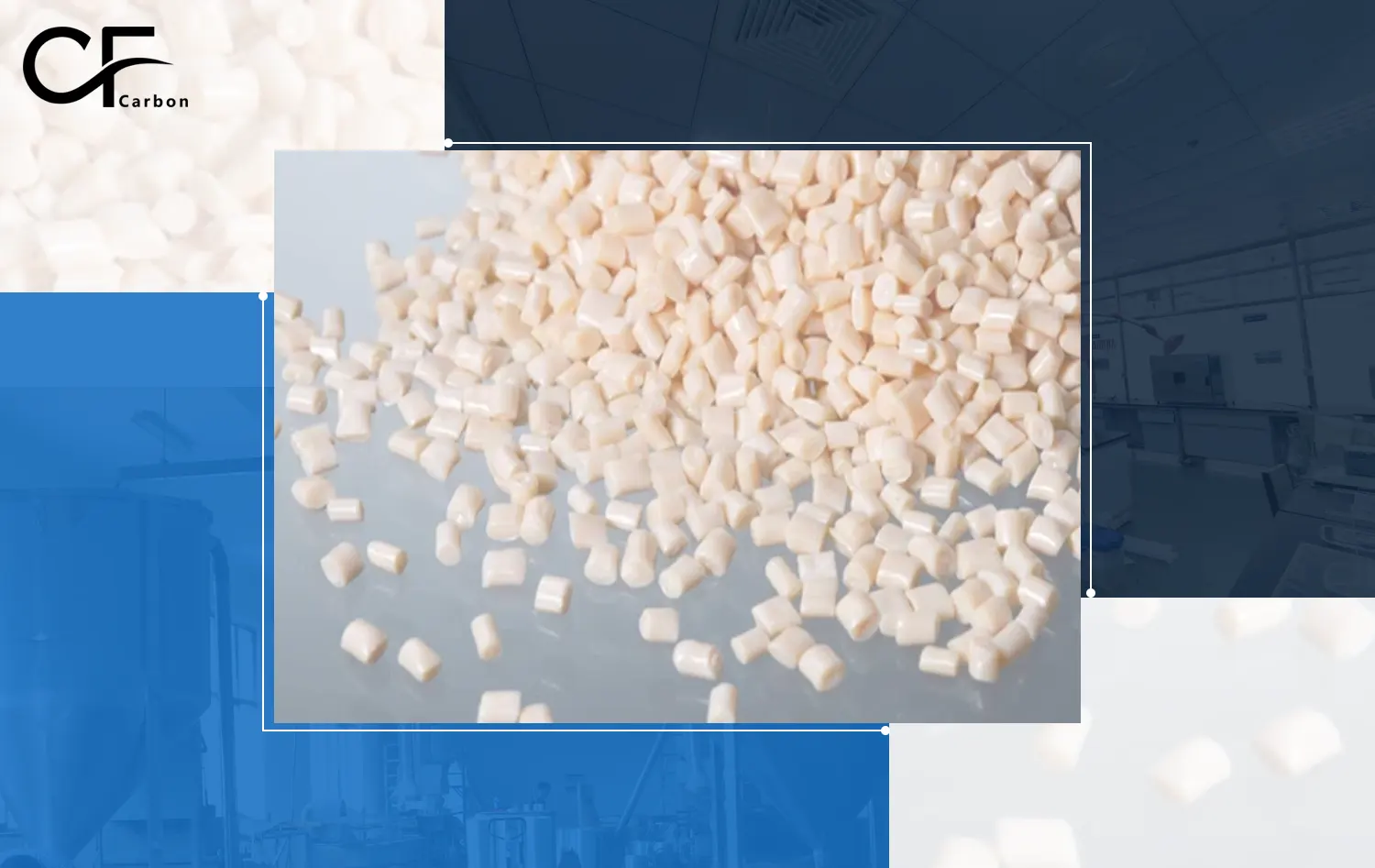
Traits of Carbon Fibers
1. High Strength: Carbon fibers have exceptional tensile strength, making them ideal for applications requiring robust materials. 2. Lightweight: They are significantly lighter than metals, which helps reduce overall weight in various applications. 3. High Stiffness: Carbon fibers exhibit high stiffness, enhancing rigidity and structural integrity. 4. Corrosion Resistance: They are resistant to corrosion, which prolongs the material's lifespan in harsh environments. 5. Thermal Conductivity: Carbon fibers have good thermal conductivity, helping to manage heat dissipation effectively. 6. Low Thermal Expansion: They experience minimal thermal expansion, maintaining dimensional stability across temperature changes.
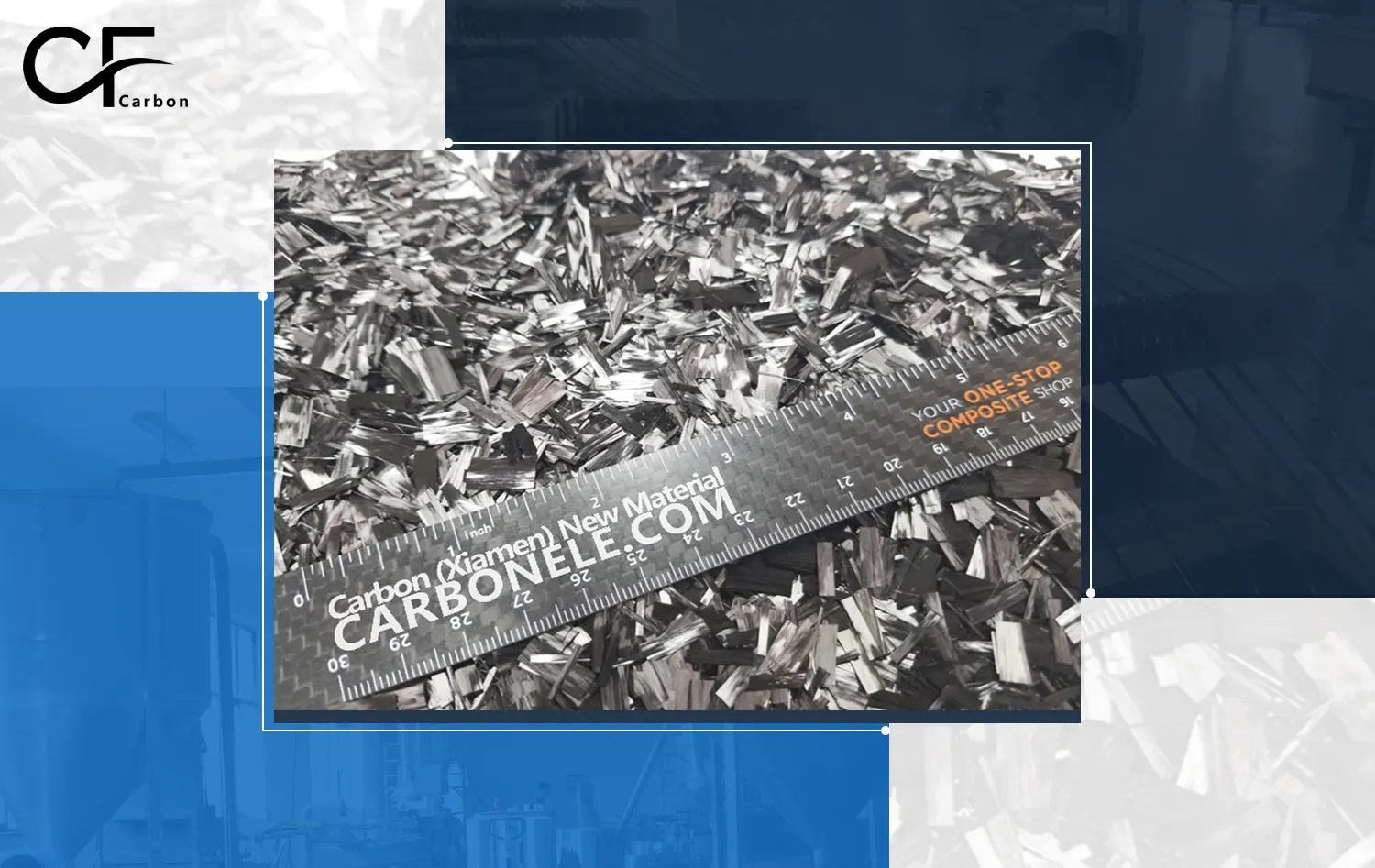
Advanced Manufacturing Technology
Carbon (Xiamen) New Material utilizes state-of-the-art carbon fiber composite manufacturing techniques and contemporary machinery. The company employs highly automated layup systems for accurate fiber placement, ensuring uniform mechanical properties. Advanced curing methods, such as vacuum-assisted and autoclave curing, improve both efficiency and product quality. Additionally, the company continually invests in research and development to pioneer innovative production techniques, enhancing its ability to address diverse customer needs and maintain a leading position in the competitive market. For example, their latest advancement in layup technology has notably shortened production time while maintaining high standards of quality.
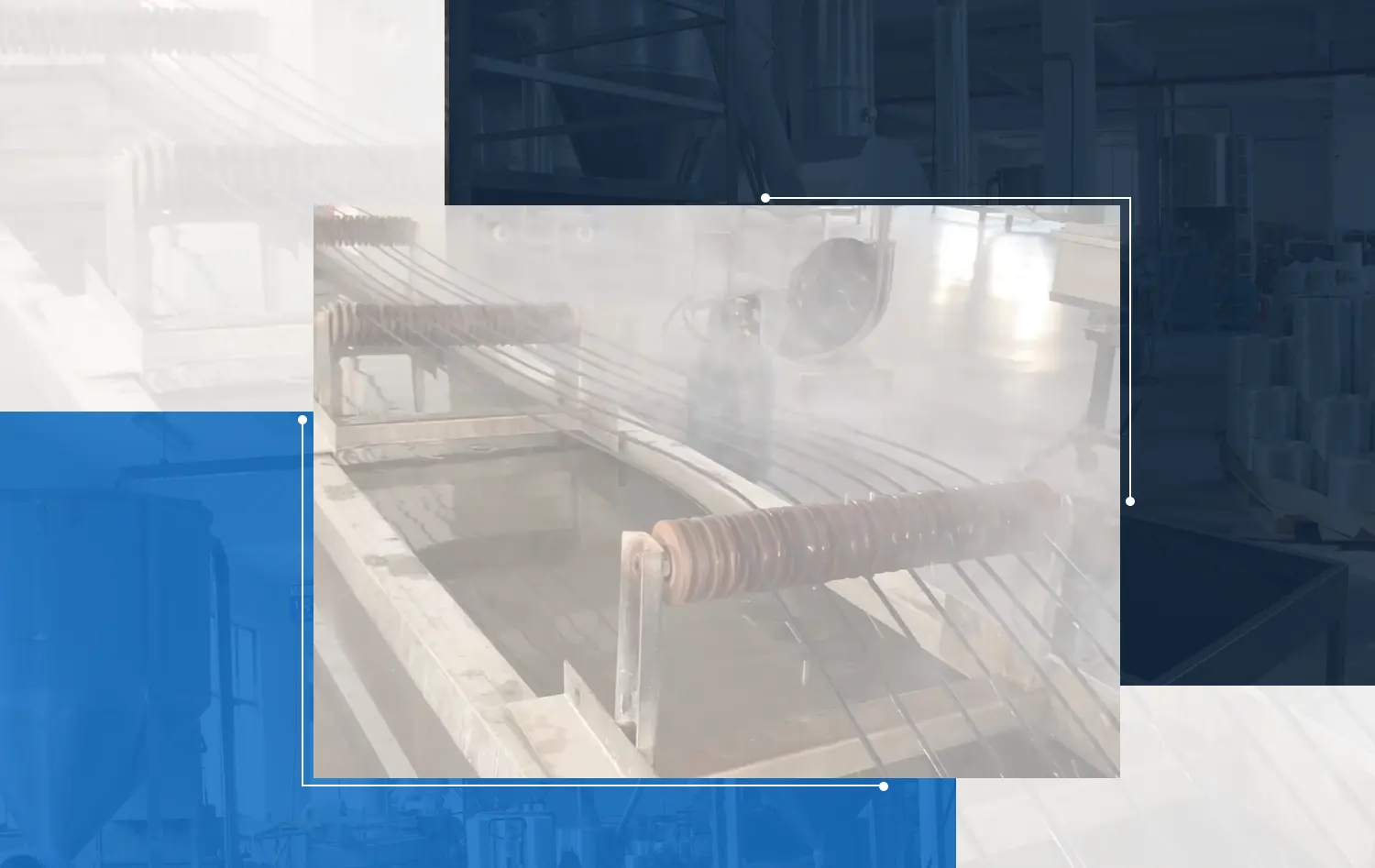
Frequently Asked Questions
Carbon (Xiamen) New Material Co., Ltd. aims to provide buyers with "one-stop" worry-free high-quality services. Here you can find all information about carbon fiber engineering plastics. If you still have questions, please send us an email for consultation!
-
How can I contact the manufacturer of a product that interests me?
When you find a product you are interested in, you can contact the manufacturer directly by sending an email and we will get back to you as soon as possible.
-
How do I find the products that interest me?
All you need to do is enter the keyword, product name in the search window and press the Enter key on your keyboard. Your search results page will then be displayed. You can also search within the product category pages on the home page. Each category is divided into subcategories, allowing you to refine your search and find products that interest you.
-
Where will I find a buying guide?
Please contact our after-sales service directly and we will provide you with a comprehensive operating guide.
-
What are CF Reinforced Thermoplastic Composites?
CF Reinforced Thermoplastic Composites are materials where carbon fibers are incorporated into a thermoplastic matrix. They combine the strength and stiffness of carbon fibers with the processability and recyclability of thermoplastics. For instance, they are used in automotive parts like bumper beams.
-
What are the benefits of CF Reinforced Thermoplastic Composites over traditional composites?
The key benefits include faster production cycles, easier recyclability, and better impact resistance. They also offer design flexibility. An example is in the manufacturing of consumer electronics casings where complex shapes can be achieved more easily.
-
How are CF Reinforced Thermoplastic Composites processed?
Common processing methods include injection molding, extrusion, and compression molding. Injection molding is widely used for mass production. For example, in the production of small components for the medical industry.
-
What industries use CF Reinforced Thermoplastic Composites?
They are utilized in aerospace, automotive, medical, and sports equipment industries. In aerospace, they can be found in interior components. In the medical field, they might be used in prosthetics.
-
How does the carbon fiber content affect the properties of the composites?
Higher carbon fiber content generally leads to increased strength and stiffness but may reduce ductility. A moderate content is often balanced for specific applications. For example, a higher content might be preferred in structural parts of a race car.
-
What are the challenges in using CF Reinforced Thermoplastic Composites?
Challenges include higher material costs, complex processing equipment requirements, and ensuring uniform fiber dispersion. Issues with adhesion between the fibers and the matrix can also arise. An example is in achieving consistent quality in large-scale production.








